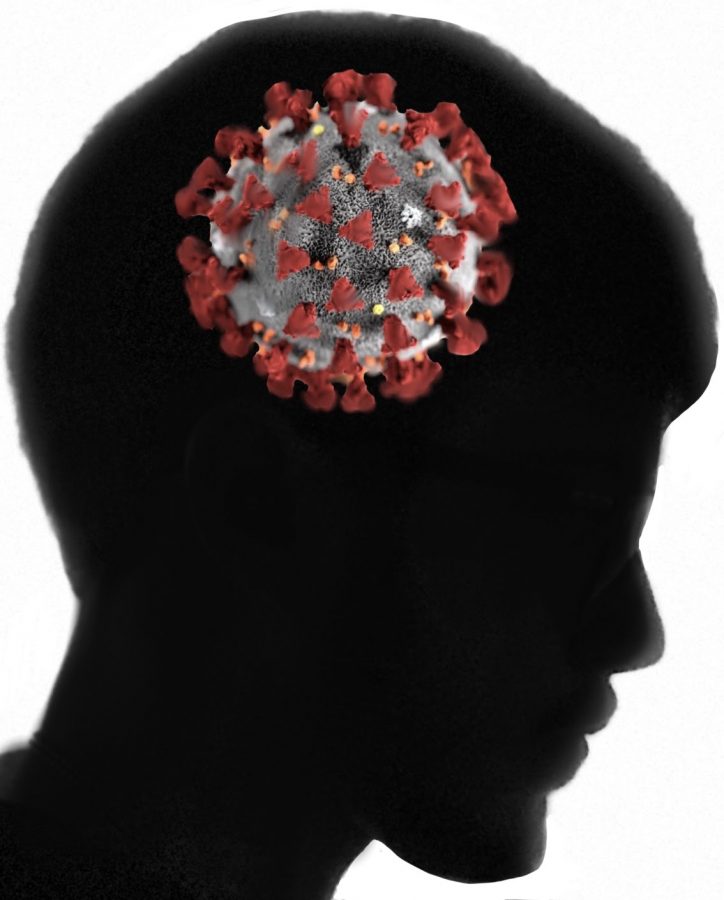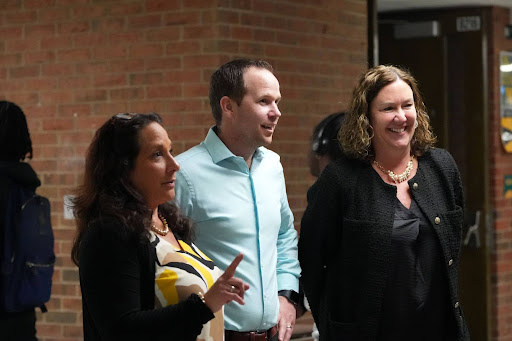The psychological impact of Covid-19
Photo credit: Brandon Miller
January 29, 2021
While Covid-19 is a dangerous health concern within itself, research has found that there is another risk involved in being separated and quarantined from one another that cannot be ignored. In recent months, many have undergone major stressful events. Based on data from Dartmouth’s Life Change Index, tragedies that have become commonplace amid the pandemic, such as the loss of a loved one, are seen as some of the leading lifetime stressors.
On top of the plethora of losses many have endured, the social requirements of humans have been neglected. According to an article by the National Center For Biotechnology, humans require social interaction to live healthy lives. The current lack thereof has led to tumultuous pressures placed on mental health. Psychology teacher Jennifer Weisbrodt says that based on the increased amount of people asking for guidance, she has noticed a change in the mental health of students.
“I’ve never received so many emails from counselors, parents (and) students about mental health-related issues,” Weisbrodt said. “People are really suffering right now, and I think it can be difficult for those who have fared well mentally in this pandemic to understand the level of suffering that’s going on out there because we don’t talk about it.”
Weisbrodt explained that socially, someone may be more likely to let others know that they were hospitalized due to a physical ailment, for example Covid-19, but might not share visits pertaining to mental health issues such as anxiety or depression. Weisbrodt believes that as a result, the general population doesn’t know what struggles that others may be dealing with.
To combat this, many believe it’s very important to look at possible ways to deal with the stress and lack of interaction. Junior Maelisa Watkins has been staying in touch with people through digital hangouts.
“So I try my best to do Facetimes with my friends — the group versions of them — or have Zoom calls with my friends, just so that I can see them,” Watkins said. “Because I feel like I need a little bit more interaction than just staring at them through a Zoom call.”
In addition to social repercussions, isolation as a result of Covid-19 has induced another pandemic. According to an article from The University of Michigan, prolonged stay-home orders have led to an overall increase in substance abuse. In addition to the immediate impacts of substance abuse, those that are struggling with addiction are also becoming more susceptible to Covid-19 and other illnesses as their immune and respiratory systems can be damaged by the substance use.
Rather than partake in unhealthy coping mechanisms, it’s instead recommended to connect with others, as it can more efficiently assist in dealing with stress and anxiety. Clinical social worker Steven Kalbfleisch recommended taking a pause and being present to help with mental health issues.
Kalbfleisch believes that it’s important to remove major stressors that one has control over, as well as replacing negative self-thoughts with positive ones. Additionally, to restore a united sense of community and support, Kalbfleisch also said that everyone should understand that they aren’t on their own through this pandemic.
“Let’s express how we’re feeling,” Kalbfeisch said. “Let’s find comfort through one another. Let’s reach out to one another (and) seek help when we need it.”












